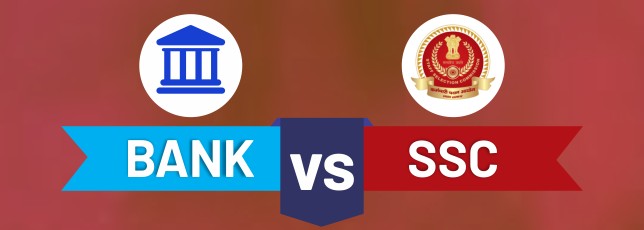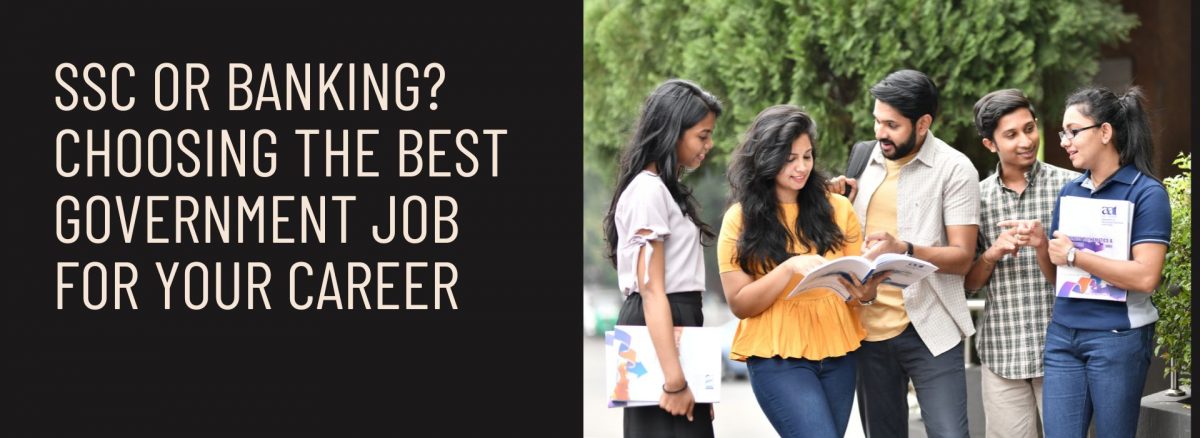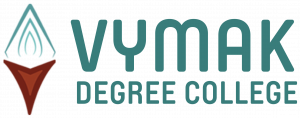In India, government jobs have always been a symbol of stability, respect, and financial security. Among the various sectors offering these opportunities, SSC (Staff Selection Commission) and Banking jobs are two of the most popular and competitive choices for graduates. If you’re a student at VYMAK Degree College or planning to begin your journey into the government job sector, the question naturally arises: SSC or Banking — which is the better path for your future?
Let’s explore both options in depth to help you make an informed career decision.
Understanding SSC and Banking Exams
Before we compare them, it’s essential to understand what each career path involves.
The Staff Selection Commission (SSC) conducts several examinations to recruit candidates for various government ministries, departments, and offices. Some of the most popular SSC exams include SSC CGL (Combined Graduate Level), SSC CHSL (Combined Higher Secondary Level), SSC MTS (Multi-Tasking Staff), SSC JE (Junior Engineer), and SSC GD (General Duty Constable). These roles are usually clerical, administrative, or technical in nature.
Banking exams, on the other hand, are conducted to fill clerical and officer-level positions in public sector banks. The most recognized exams are IBPS PO (Probationary Officer), IBPS Clerk, SBI PO, SBI Clerk, and RBI Grade B. Banking job roles generally include customer service, loan processing, and account management.

Eligibility: SSC and Bank Exams
Both SSC and Banking exams require a graduate degree, although they differ slightly in age limits and qualifications.
The common eligibility for both is a Bachelor’s degree from a recognized university. The age limit for SSC CGL is between 18–32 years (depending on the post), while IBPS PO requires candidates to be 20–30 years of age, and SBI PO sets the limit at 21–30 years. Age relaxation applies to SC/ST/OBC and other reserved categories as per government norms.
Exam Pattern & Difficulty Level
The structure and complexity of these exams also differ.
SSC exams are generally divided into multiple tiers. For example, SSC CGL includes:
Tier 1: Objective-type questions (General Awareness, Reasoning, Quant, English)
Tier 2: Advanced Quantitative Aptitude, English, and domain-specific papers
Tier 3 & 4: Descriptive paper and skill/typing tests, depending on the post
Bank exams like IBPS and SBI have a three-stage selection process:
Preliminary Exam
Mains Exam
Interview (only for Officer-level posts)
Sections commonly include Quantitative Aptitude, Logical Reasoning, English, General Awareness, and Banking Awareness.
In terms of difficulty, SSC exams place a stronger emphasis on general studies and reasoning, while banking exams are more speed-oriented and heavily focused on data interpretation and logical puzzles.
If you enjoy reading about current affairs, history, polity, and static GK, SSC might be a better match. However, if you are strong in mathematics, logical thinking, and decision-making, banking could be your best fit.

Career Growth & Salary Comparison
When it comes to salary and career growth, both sectors offer attractive benefits.
In the banking sector, the starting salary for a Probationary Officer typically ranges from ₹35,000 to ₹60,000 per month. Promotions are relatively fast, and it’s possible to reach high-level positions like Branch Manager or Zonal Manager within a decade. However, frequent transfers — sometimes across states — are common. Perks include Dearness Allowance (DA), House Rent Allowance (HRA), performance bonuses, and medical benefits.
In contrast, SSC jobs offer starting salaries in the range of ₹30,000 to ₹60,000 per month, depending on the post. Promotions are steady but may take longer compared to banking. The advantage is that transfers are rare, and you often remain within one region. Perks include fixed work hours, government housing, pension schemes, and Leave Travel Concession (LTC).
So, if job stability and work-life balance are your top priorities, SSC could be the better choice. If you’re more driven by quick promotions and financial incentives, the banking sector may be more rewarding.
Job Nature & Lifestyle
The nature of the job and lifestyle also differ significantly.
SSC jobs usually follow fixed hours (typically 9 to 5), with minimal work pressure and fewer performance targets. In contrast, banking jobs often involve long working hours, sales targets, and high-pressure customer service responsibilities.
At VYMAK Degree College, we regularly assist students in evaluating career paths. For those who value a structured lifestyle and minimal work stress, SSC is ideal. On the other hand, individuals who thrive in a dynamic and challenging environment may find banking more fulfilling.
Coaching & Preparation Strategy
Success in either exam requires discipline, strategic planning, and expert guidance.
For SSC coaching in Bangalore, VYMAK offers dedicated programs with General Studies modules, Quantitative Aptitude drills, previous year paper analysis, and full-length mock test series.
For bank exam preparation, we provide training in speed math, puzzle solving, banking awareness, and rigorous mock test practice under exam-like conditions.
Whether you opt for SSC or banking, consistency and proper planning are key. Begin with strong foundational material, practice daily, and evaluate your progress through weekly mock tests to improve both speed and accuracy.

Government Job Preparation Tips
Here are a few proven tips to help you prepare smartly for your dream job:
Know Your Exam: Familiarize yourself with the syllabus, pattern, and previous cut-offs.
Make a Study Plan: Split your preparation into clear phases—concept building, practice, and revision.
Read Daily News: Especially for SSC and Bank Mains, current affairs hold great importance.
Take Mock Tests: Simulated online practice enhances your problem-solving speed.
Join Coaching if Needed: A structured course can provide a clear path and regular motivation.
At VYMAK Degree College, we ensure that students receive personal mentorship, current study materials, and guidance from experienced faculty for both SSC and banking success.
Conclusion: Which One Should You Choose?
There’s no one-size-fits-all answer to the SSC vs. Banking debate. The ideal career choice depends on your individual strengths, preferences, and long-term goals.
You should choose SSC if:
You prefer administrative or government departmental roles
You seek a stable job with fixed hours
You have a strong interest in general knowledge and static GK
You should choose Banking if:
You enjoy dynamic work and quick promotions
You’re good at reasoning, quantitative aptitude, and current affairs
You’re open to frequent transfers and performance-based challenges
Whatever path you take, remember that both SSC and banking jobs offer excellent long-term security, growth, and respect in society.
Start Your Government Job Journey with VYMAK Degree College
At VYMAK Degree College, Bangalore, we don’t just offer graduation programs — we provide integrated coaching for SSC and banking exams, allowing students to start building their careers from day one.
With personalized mentorship, expert-led sessions, and an exam-focused approach, we equip our students to succeed in the competitive world of government job exams.
Still confused about your path?
Visit our campus or speak with our experienced career counseling team to find the best fit for your future!
Categories
SSC or Banking? Choosing the Best Government Job for Your Career

